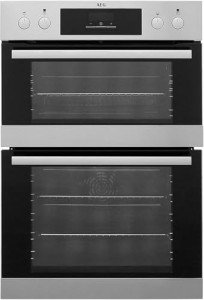Are Which Built In Oven To Buy As Important As Everyone Says?
Choosing the Right Built-In Oven: A Comprehensive Guide
When it pertains to kitchen appliances, the built-in oven is a main figure in contemporary cooking. It integrates functionality with style, seamlessly integrating into cabinets while offering a broad range of cooking alternatives. However, with a lot of designs on the marketplace, selecting the ideal built-in oven for your cooking needs can be quite the difficulty. This post aims to offer a comprehensive guide to help you make an informed choice.
What to Look for in a Built-In Oven
Picking the ideal built-in oven involves examining numerous aspects that align with your cooking choices, kitchen style, and spending plan. Key factors to consider include:
Types of Ovens:
- Conventional Ovens: Use convected heat from the top and bottom aspects.
- Convection Ovens: Have a fan that distributes hot air for even cooking.
- Steam Ovens: Cook using steam, keeping moisture and nutrients.
- Microwave Ovens: Use microwave radiation for fast cooking.
- Combination Ovens: Combine numerous cooking approaches in one system.
Size and Capacity:.Built-in ovens can be found in numerous sizes, normally ranging from 24 to 30 inches wide. Ensure that the oven fits within your designated area and has an enough capability to meet your cooking needs.
Features and Technology:
- Smart Controls: Some ovens come equipped with Wi-Fi capabilities for push-button control.
- Self-Cleaning Options: Saves time and effort with high-heat cleansing cycles.
- Digital Displays: Offer improved accuracy and ease of use.
- Cooking Modes: Different settings for baking, broiling, roasting, etc.
Energy Efficiency:.Look for ovens with an Energy Star score to add to energy conservation and lower utility costs.
Rate Range:.Established brands frequently have a series of price points. It's necessary to find a model that fits your spending plan while satisfying your needs.
Comparing Popular Built-In Ovens
Here is a contrast of some popular built-in oven brands and models:
Brand
Design
Type
Size (inches)
Key Features
Cost Range
Bosch
800 Series HBL8453UC
Convection
30
European style, self-cleaning, Wi-Fi enabled
₤ 2,000 – ₤ 3,000
KitchenAid
KMBP107ESS
Combination
27
Convection cooking, steam help
₤ 1,700 – ₤ 2,500
GE Appliances
PT7800SHSS
Combination
30
Sensing unit cooking, steam innovation
₤ 1,200 – ₤ 1,800
Whirlpool
WOS51ESS
Conventional
30
Self-cleaning, fingerprint resistant
₤ 800 – ₤ 1,200
Miele
H 6880 BP
Convection
30
Touch controls, multiple cooking modes
₤ 6,000 – ₤ 8,000
Installation and Maintenance
Setting up a built-in oven can be intricate, often needing expert assistance. Here are steps to remember:
- Professional Installation: Hiring a professional will guarantee security and compliance with regional building regulations.
- Ventilation: Ensure correct ventilation to prevent buildup of heat or odors.
Routine upkeep can lengthen the life of your oven:
- Regular Cleaning: Utilize self-cleaning features or manual cleansing.
- Examine Seals: Check and change door seals to preserve efficiency.
- Calibrate Temperature: Ensure the oven is functioning at the right temperature for optimal cooking results.
Regularly Asked Questions (FAQs)
1. What size built-in oven should I buy?
The size of your built-in oven largely depends upon your kitchen layout and cooking practices. Standard sizes are usually 24, 27, or 30 inches large. Step the offered area and think about the kinds of dishes you typically prepare.
2. Are there built-in ovens with microwave performance?
Yes, many brand names offer combination ovens that include both convection cooking and microwave performance, supplying flexible cooking choices.
3. What is the distinction in between a built-in oven and a wall oven?
The terms are typically used interchangeably; however, a wall oven specifically describes ovens installed into the wall space, while built-in ovens can include those positioned inside a cabinets system.
4. Is a steam oven worth the investment?
Steam ovens are perfect for health-conscious cooks, as they retain nutrients and wetness in food. If you frequently prepare vegetables, fish, or bread, a steam oven may be a valuable addition.
5. How do I troubleshoot an oven that will not heat up?
Examine if the oven is appropriately plugged in, if the breaker is working, and guarantee that the settings are appropriate. If problems persist, speak with an expert service technician for repairs.
Choosing the ideal built-in oven includes a cautious review of your cooking routines, kitchen measurements, and wanted functions. From traditional to steam ovens, each offers unique benefits suited for various culinary requirements. By considering the aspects outlined in this guide and examining popular designs, you can confidently select an oven that will raise your cooking experience while fitting perfectly within your kitchen visual. Before purchasing, always check out www.ovensandhobs.uk and seek advice from with home appliance experts to find the very best system for your particular requirements. Welcome the opportunity to boost your culinary productions with the ideal built-in oven.
